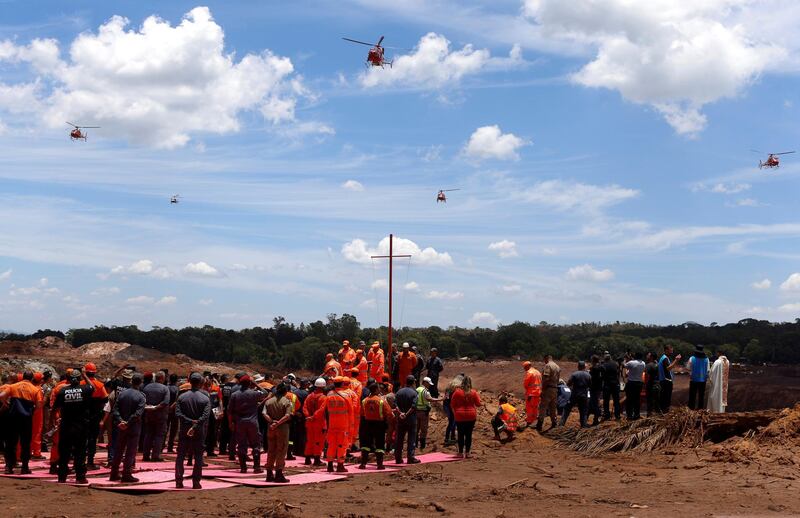As the toll from last week’s dam collapse rose to 115 dead and 248 missing, it became clear that a litany of safety failures and staff shortages contributed to the collapse.
The search in the town of Brumadinho in Minas Gerais near Brasilia was ongoing but no survivors have been found in the last week. The process is now an attempt to recover the bodies of the dead.
Virtually all those killed when the dam collapsed on January 25 were workers at the mine, burred under a wall of thick sludge and mining extrapolate. Most were killed in the facility’s cafeteria and main administrative area as the wave of sludge rolled through.
But the collapse wasn’t unprecedented. Three years ago a dam at a nearby mine run by the same company, Vale, collapsed. It killed 19 people and caused the worst environmental disaster in Brazilian history.
Authorities have now seized $3 billion in company assets in anticipation of huge damages pay outs and compensation.
But what is worrying many in Brazil’s mining province is that it could happen again as regulations have gotten less rigorous in Minas Gerais state.
"It felt like it was just a matter of time before something bigger would happen," said Josiele Rosa Silva Tomas, the president of the Brumadinho residents' association.
The danger is widespread – a 2017 report from the National Water Agency classified more than 700 dams nationwide as a high risk of collapse and with high potential for causing damage.
Environmental groups accused the previous Congress and president of rolling back significant protections, and many expect further weakening under President Jair Bolsonaro, who has said environmental regulation hamstrings several industries, including mining.
Also of concern is that the state has only 20 per cent of the staff needed to monitor and enforce what little regulation there was.
Joao Vitor Xavier, a state deputy, gave a grim warning.
"I'm not saying we might have other dam ruptures in Minas Gerais. I am saying that, from everything I've seen and studied, I have no doubt we will have more ruptures of dams," he told the state assembly.







